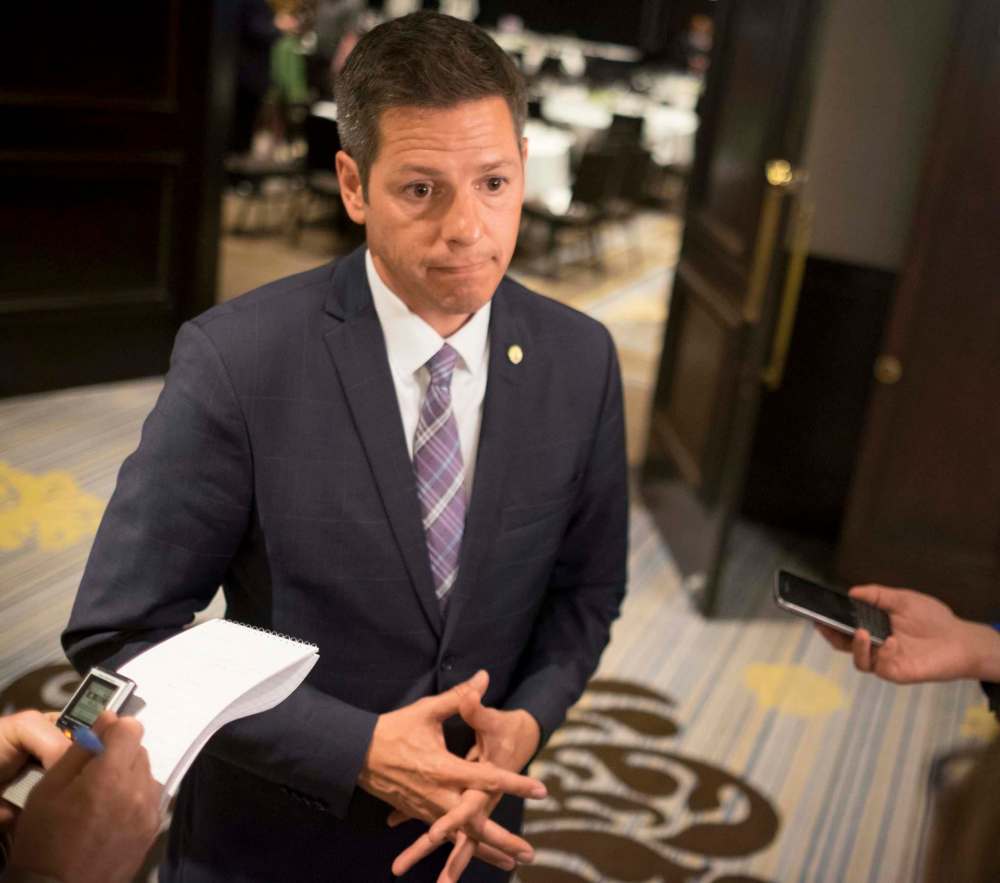Some flexibility with elements, timing of development fees, Bowman says
Advertisement
Read this article for free:
or
Already have an account? Log in here »
To continue reading, please subscribe:
Monthly Digital Subscription
$1 per week for 24 weeks*
- Enjoy unlimited reading on winnipegfreepress.com
- Read the E-Edition, our digital replica newspaper
- Access News Break, our award-winning app
- Play interactive puzzles
*Billed as $4 plus GST every four weeks. Offer only available to new and qualified returning subscribers. Cancel any time.
Read unlimited articles for free today:
or
Already have an account? Log in here »
Hey there, time traveller!
This article was published 27/09/2016 (3048 days ago), so information in it may no longer be current.
Mayor Brian Bowman says he’s open to reviewing several aspects of the controversial administrative report on growth fees, particularly the dollar amount, an implementation date and exemptions.
Bowman said Tuesday that while the report called for new fees on development projects starting Jan. 1, that date could be moved.
“If you read the report, you will see the public service recommendation speaks to fees being collected later in the year but the bylaw would be in force as of January,” he said. “We’ll have discussions whether or not that’s followed by EPC and, ultimately, council.”

Bowman met with reporters following a closed-door meeting of his executive policy committee. He would not disclose what had been discussed, though senior officials from the departments of planning, real estate and transit were in the room.
Coun. John Orlikow (River Heights-Fort Garry) met with councillors in a closed-door session Friday and later said it would be “absurd” to have development fees take effect Jan. 1, adding more discussions with the development industry and the general public are needed.
Orlikow has been given the task of charting a course for city hall through the political storm that was unleashed by the Sept. 16 report that called for a new fee structure on new residential and non-residential development. The proposal, based on a consultant’s study, predicts the program could generate $35 million in 2017 from fees charged for all development projects that would be used towards the cost of new infrastructure projects.
For residential development, there would be a charge of $10,168 for every 1,000 square feet of space. Varying fee amounts are proposed for non-residential development, which some industry observers speculated would add 10 per cent to the cost of those projects.
Representatives from the development industry oppose the new fees, claiming the city is ignoring the property tax revenue generated by new developments and they have suggested the report’s data is exaggerated or has been fabricated to justify the need for the fees.
Last week’s private meeting was called by Orlikow following an earlier decision by Bowman and members of his executive policy committee to put a hold on the issue to allow more time for community input. There is some division on council on how to proceed; some inner-city councillors support the implementation of fees, but others say the process had been rushed and they question some of the report’s financial numbers.
“I think making a decision sooner than later would reduce market uncertainty,” Bowman said. “We’ve had requests from the (development) industry to make decisions on this matter sooner than later. We need to continue those conversations with the question of how and when…. I’ll be waiting Coun. Orkilow’s recommendations when he comes back to EPC.”
aldo.santin@freepress.mb.ca


